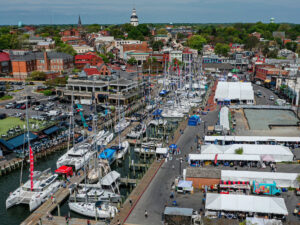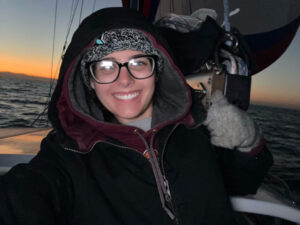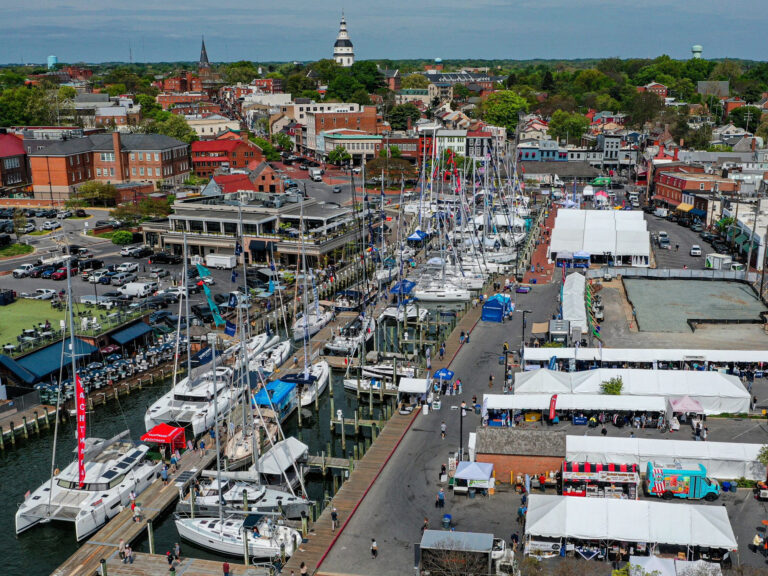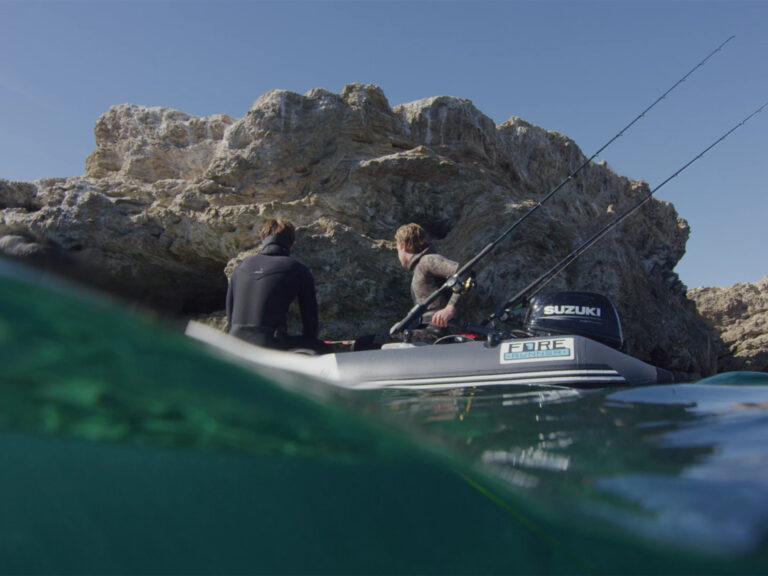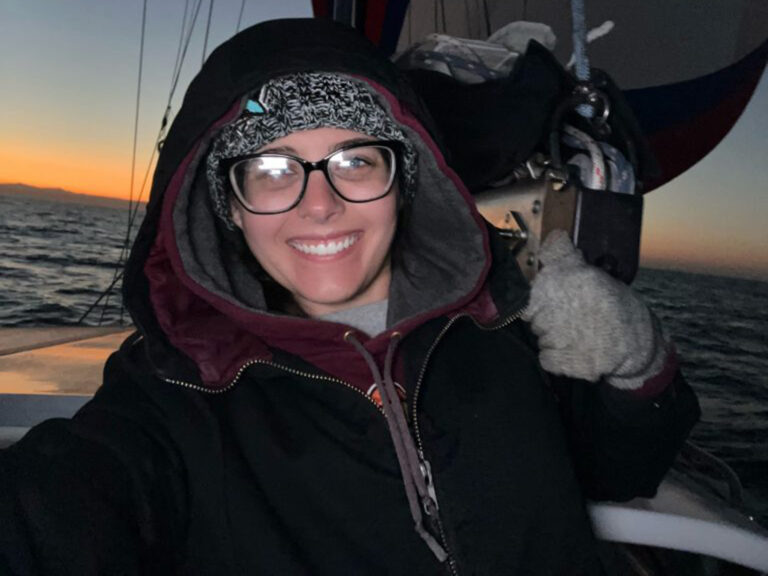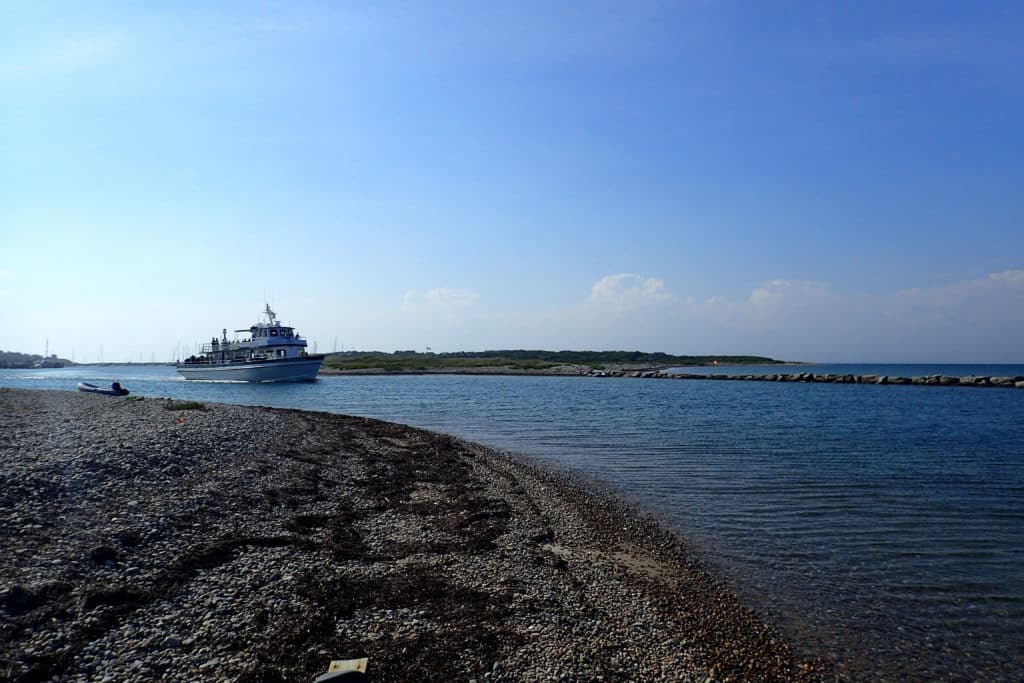
It all started out so well, our little getaway last summer to the Elizabeth Islands and Buzzards Bay. Heeding the previous night’s forecast, which called for a lackluster northerly to slowly swing to the southeast and build in the afternoon, we cast off our mooring line early in the hopes we’d be well along our way before the breeze was on our nose.
It was a good plan. The water was calm when we left Wickford, Rhode Island, and though the current was against us for the first hour or so, we made OK headway. Not really thinking about our speed over the ground, I figured that by the time we reached the mouth of Narragansett Bay, 8 miles to the south, the outgoing tide would sweep us right along. Perfect, I thought, as we putted onward, me listening to the chatter on the VHF, toying with the autopilot, and watching fishing boats while my wife, Sue, and trusty hound snoozed below.
We were due for a good adventure. A combination of a recalcitrant engine, family schedules and numerous summer work trips and races on other people’s boats had meant we hadn’t sailed our Sabre 34 outside the protected waters of Narragansett Bay in over a year.
Don’t get me wrong. Narragansett Bay is a fine, sometimes even challenging place to sail. The afternoon sea breeze often climbs into the midteens and higher on most summer days, and it can get quite gusty between the islands and shore, where the channels narrow. Toss in an adverse tide and the ensuing chop, and occasionally the going gets downright sloppy. Ditto when a honking northerly screams down the bay across a long fetch of open water.
But while such conditions can keep you on your toes and make you focus on safety in the bay, they can also lull you into thinking that you — and your boat — are prepared for safety at sea. Yes, Mother Ocean was about to deliver a wake-up call. “Dangerous situations can develop with great suddenness — so even when all looks well, watch out!” the authors warn at the outset of the “Safety Afloat” chapter of Chapman Piloting & Seamanship.
I didn’t.
As we motored under the Jamestown Bridge and past Dutch Harbor, bound for Beavertail, at the southern tip of Conanicut Island, it didn’t occur to me to move a spare halyard back to the mast from the bow pulpit, out of the way of the jib. I didn’t bother hoisting the main while still in the lee of the shore; nor did I run below to dig out our chartbook or plot out the waypoints we’d need for the day. I figured there would be time for all that if and when the wind did perk up.
Soon enough, though, ocean swells began to lift us. I watched the surf pound the rocky coast ahead, and as we neared open water, I noted that the wind, now right on the nose, was turning quickly brisk. I shoulda, I coulda, I didn’t. And then, we were out of the lee of land and smack dab in a mixing bowl where incoming waves met up with currents coursing out of Narragansett Bay’s two wide mouths. Powerboats sped past, churning up monstrous wakes, and Sue spilled into the cockpit, glared at me, and said, “I know where we are,” as she fled to the rail for relief. I’d forgotten what a nasty patch of water this could be when crossed too close to shore.
Minutes later I stood on the cabin top, braced against the swinging boom as I reached overhead with both hands to attach the halyard to the mainsail in the hopes of raising it and quieting the corkscrew motion of the bronco we were riding. “God, I hate boats,” I thought as the bow buried itself in a wave.
With the main finally set, we bore away to let it fill; the ride improved slightly, though we both knew we were in for a long and bouncy upwind motorsail to our planned destination in Cuttyhunk. “‘Plan ahead’ is one of the best pieces of advice you can be given in boating,” Chapman advises.
Duly noted.



